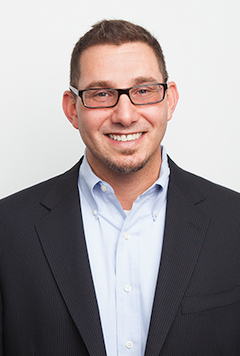When Paul Steinberg first read The Big Book, the “bible” of Alcoholics Anonymous, written by founder Bill Wilson, he scribbled disagreements in the margins. His sponsor later saw them and took him to task. “Do you really think you know more than Bill Wilson, who wrote a book that has saved the lives of millions of people?” he said. “Maybe it’s time for you to start looking for things you can connect with in the book, not things you disagree with!”

Steinberg took the advice to heart, and a journey began. He is now the rabbi of L.A.-based Beit T’Shuvah, a Jewish centre for addiction recovery that integrates the wisdom of the 12-step program with Jewish spirituality, culture and community. He will be speaking at Congregation Beth Israel, together with Rebecca Denham of Jewish Addiction Community Services Vancouver, on Sept. 8, 7:30 p.m. The event, which officially launches JACS Vancouver, is called Opening the Door: A Conversation about Addiction in the Jewish Community.
Steinberg first came to Beit T’Shuvah, which this year celebrates its 30th anniversary, as a rabbi, a Jewish educator and an alcoholic looking for healing. After living there for five months in recovery, he began doing part-time spiritual counseling as part of the centre’s work therapy program. Eventually, he took on that role full time, then became the pulpit rabbi of the centre’s synagogue, a congregation with hundreds of attendees on Shabbat.
“The centre is unusual in many ways, one of which is in having a synagogue with a fully functioning congregational life on site,” Steinberg told the Independent. “The congregation is made up mostly of residents of the centre, alumni and their family members. Being so close to Hollywood, we have an amazing roster of artists and musicians who come to shul here – the music rocks.”
Steinberg’s rebirth was dependent on his discovering a deeper Judaism, and that is something he is passionate about sharing with other Jews in recovery. “We believe, as evidenced by the success of the 12-step program, that the spiritual is essential in recovery,” he said.
In 2014, Steinberg published the book Recovery, the 12 Steps and Jewish Spirituality: Reclaiming Hope, Courage and Wholeness, about his journey and the insights it afforded. He explained that, for many Jews, the 12 steps are uncomfortably associated with Christian spirituality, despite the open-ended approach to God in the method. “Some Jews recoil from AA for that reason. We need to give Jews access to the 12-step structure in Jewish terms,” he said.
“The addict’s world is very narrow, obsessive, self-centred. Opening up and surrendering to a greater power – whether that’s thought of as God, the universe, the Dao, the collective spirit – breaks that entrapment and allows change. It is the essence of a Jewish approach to recovery. On that ground, the disciplines of Jewish life – community, service, study, prayer – can do their work.”
Discomfort with the spirituality of AA is far from the only obstacle Jews struggling with addiction face. Steinberg said there is tremendous stigma around addiction in the Jewish community, especially around drugs and alcohol. As Rabbi Abraham Twerski discusses in the foreword to Steinberg’s book, AA groups were refused the use of synagogues for many years, reinforcing their habit of locating in church basements.
“The old saying was a shikker is a goy (a drunkard is a gentile),” said Steinberg. “Jews are not supposed to be alcoholics. The reality is that there are many Jews struggling with substance abuse, even very outwardly successful Jews. There are doctors, lawyers, businessmen and even rabbis. I was outwardly a success, but I was living a divided life. My life had to completely fall apart before I would deal with my alcoholism.”
Many struggling Jews do not know where to turn when they suffer from addiction. “It is amazing how few Jews will turn to their rabbi or their community for help,” said Steinberg. “The synagogue is all too often not seen as a place where you can air your dirty laundry, where you can be vulnerable.”
The desire to provide Jews with a place to find healing from addiction as Jews is what drove the creation of JACS Vancouver. “It is imperative to provide a safe place for Jews to get help, and to provide them with the Jewish tools they need for that healing to be successful,” said Denham.
“Addiction is an epidemic in North America,” said Steinberg. “It’s not just alcohol and street drugs; it’s also gambling, sex addiction, workaholism, pornography, opiate addiction. We need to face the brokenness in ourselves and our community without stigmatizing it, so that the healing can begin.”
To RSVP for the Sept. 8 event, email info@jacsvancouver.com.
Matthew Gindin is a Vancouver freelance writer and journalist. He blogs on spirituality and social justice at seeking her voice (hashkata.com) and has been published in the Forward, Tikkun, Elephant Journal and elsewhere.
